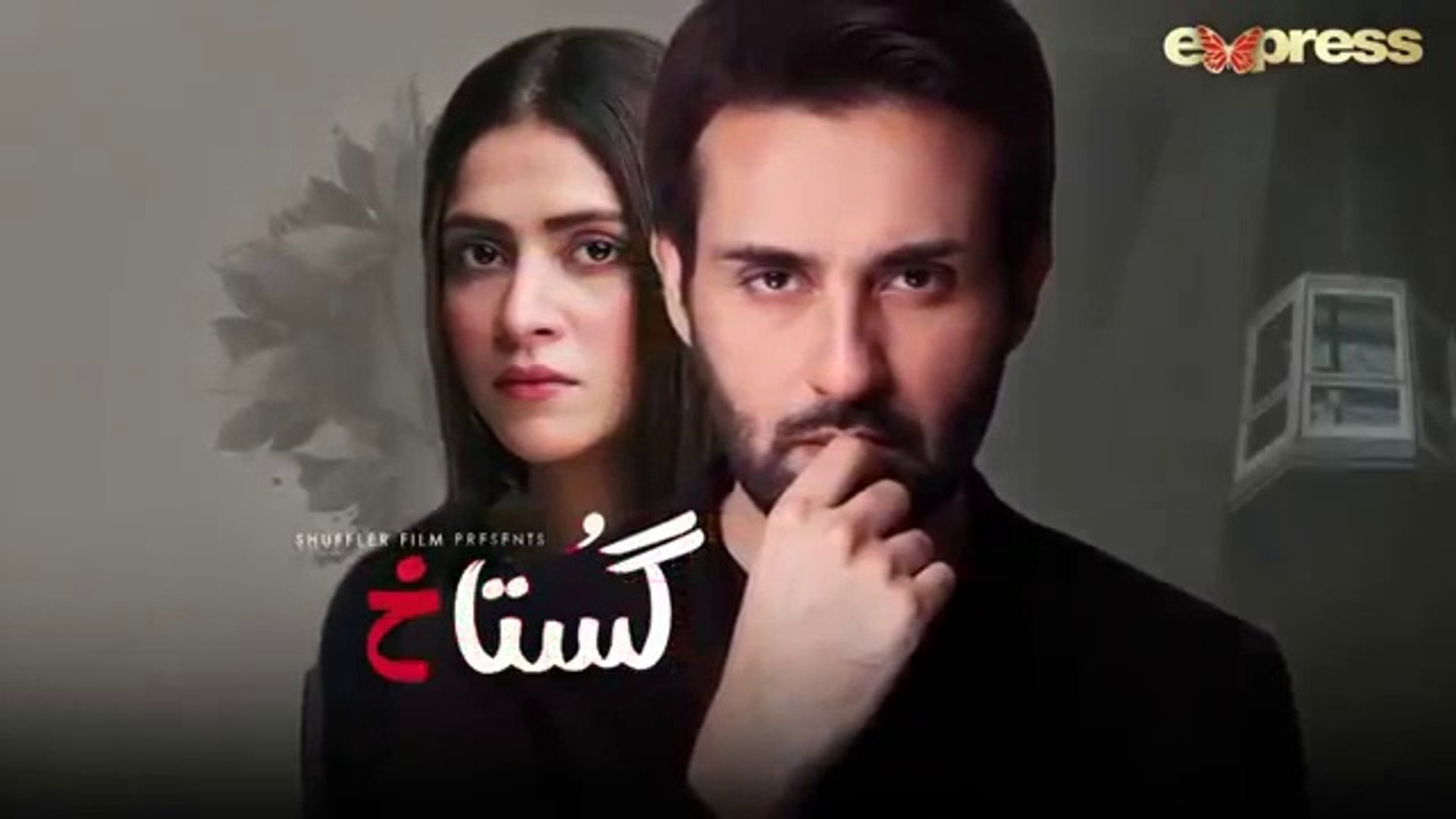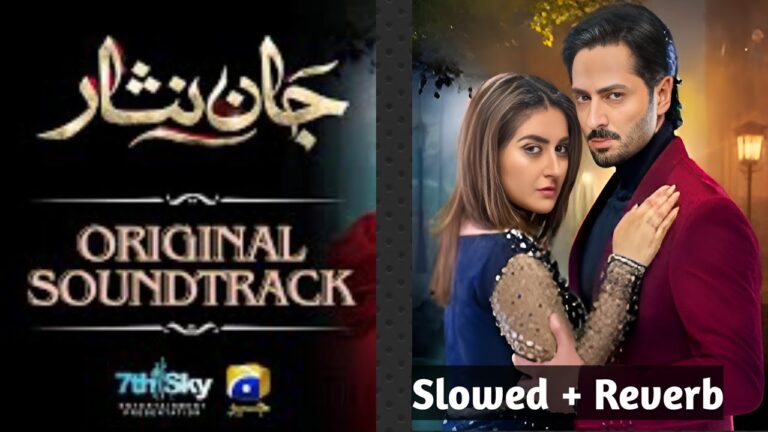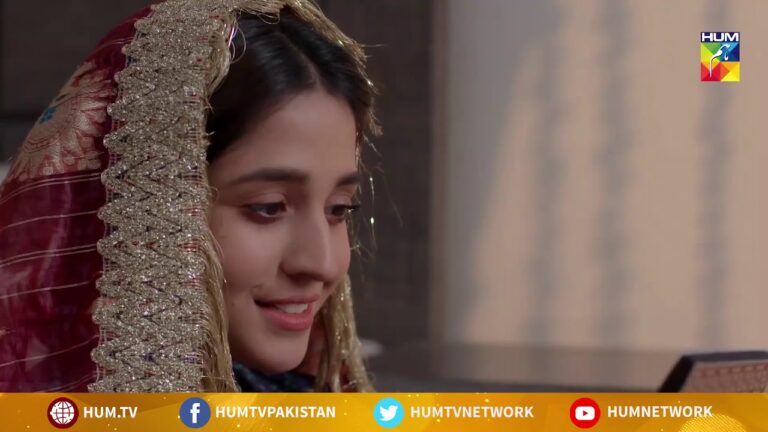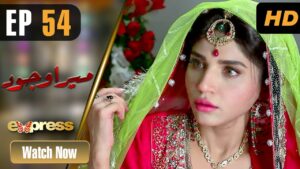Gustakh Drama Review: Gustakh dramas, a staple of South Asian television, delve into themes of rebellion and defiance, often portraying protagonists who challenge societal norms and fight for their individuality. These narratives explore the struggles of those who break free from social constraints, showcasing the consequences and complexities of defying expectations. This review analyzes a fictional Gustakh drama, dissecting its plot, characters, and the social commentary it offers.
Plot Overview
At the heart of our fictional Gustakh drama lies Zoya, a fiery and unconventional young woman who refuses to conform to societal expectations. Zoya’s spirit clashes with the conservative values of her family and community. She might yearn for an education, a career, or simply the freedom to make her own choices, all of which are restricted by societal norms.
Enter Zaraan, a charismatic individual who embodies a similar rebellious spirit. Zaraan could be an artist, a musician, or someone who challenges the status quo. Their paths collide, and an undeniable spark ignites between them. However, their connection is forbidden due to societal pressures, family disapproval, or existing social hierarchies.
The narrative unfolds with emotional turmoil. Zoya and Zaraan grapple with their feelings, torn between their desires and the fear of social repercussions. They might resort to secret meetings, coded messages, or stolen glances to nurture their connection. Friends or confidantes might offer support, while societal norms and disapproving family members act as constant antagonists.
The drama could introduce a conflict that intensifies the situation. This could be societal pressure on Zoya to enter an arranged marriage, a threat to Zaraan’s livelihood due to his association with Zoya, or a public humiliation that exposes their relationship. This forces Zoya and Zaraan to make a difficult choice: retreat and submit to societal expectations or fight for their love and defy the norms.
Character Analysis
-
Zoya: Zoya is the quintessential Gustakh protagonist. She is brave, outspoken, and fights for what she believes in. Showcasing her struggles and triumphs as she defies societal norms can be inspiring.
-
Zaraan: Zaraan’s characterization can vary. Is he a passionate artist defying social conventions? Perhaps he has a hidden past or societal expectations to fulfill, creating an internal conflict.
-
Family and Society: These characters can be portrayed as antagonists or evolve over time. Perhaps Zoya’s family experiences a change of heart, or societal norms begin to shift due to Zoya and Zaraan’s courage.
Social Commentary
Gustakh dramas offer a critical commentary on rigid social structures and the limitations placed on individual freedoms. They expose the pressures to conform and the challenges faced by those who dare to be different. Additionally, they can explore the stifling effects of societal expectations on personal relationships and self-expression.
Themes
-
Defiance and Rebellion: The core theme revolves around the courage it takes to challenge societal norms and fight for individuality.
-
Forbidden Love: Gustakh dramas often explore the complexities of love that blossoms outside societal approval, highlighting the sacrifices made for passion.
-
The Cost of Freedom: The narrative explores the consequences of defying expectations, showcasing the social ostracization, emotional turmoil, and potential loss of family support faced by rebels.
-
The Power of Individuality: The drama emphasizes the importance of self-expression and the right to live life on one’s own terms.
Building on the foundation laid in the previous review, let’s delve deeper into the complexities of Gustakh dramas. We’ll explore opportunities to add layers to the characters’ motivations, introduce the possibility of redemption for those who enforce societal norms, and weave in additional themes for a richer narrative tapestry.
Character Nuance
-
Zoya: Don’t portray Zoya simply as a rebel without cause. Perhaps she yearns for a specific dream, like becoming a doctor, or rebels against an injustice she experienced. Showcasing her motivations adds depth.
-
Zaraan: Give Zaraan a complex backstory. Does he come from a conservative family or have a past that fuels his defiance? Exploring his internal struggle between passion and societal expectations creates a relatable character.
-
Family and Society: Make the opposing forces distinct. One family member could be a supportive confidante, while another remains rigid. Society could be portrayed as evolving alongside Zoya’s defiance, with some members questioning traditional norms.
Introducing Redemption
-
A Change of Heart: Can a character who enforces societal norms experience a change of heart? Maybe Zoya’s family softens their stance due to her unwavering determination, or societal figures advocate for change.
-
Consequences and Growth: Show the characters facing the consequences of their actions. Perhaps Zoya’s defiance has unintended repercussions, or a character enforcing norms experiences a personal crisis that leads to growth.
-
Finding Common Ground: The drama can explore the possibility of finding common ground. Zoya and her family might find a way to respect each other’s values while compromising. Society could begin a dialogue about change.
Additional Themes
-
Generational Conflict: The narrative can explore the clash between traditional values held by older generations and the progressive ideals of younger generations.
-
The Importance of Education: Gustakh dramas can highlight the power of education in empowering individuals to question societal norms and fight for their rights.
-
Social Change: The drama could showcase the gradual shift in societal attitudes, with Zoya and Zaraan’s defiance acting as a catalyst for positive change.
Incorporating Social Issues
-
Gender Inequality: For a female protagonist, the drama can critique societal limitations placed on women’s choices and opportunities.
-
Freedom of Expression: The narrative can explore the importance of freedom of expression and the right to challenge authority figures and outdated traditions.
-
Class Prejudice: If social hierarchy plays a role, the drama can highlight the limitations placed on individuals from lower classes and advocate for social mobility.
Alternative Endings
-
A Spark of Inspiration: The drama might not end with a complete overhaul of society, but it can offer a glimmer of hope. Zoya inspiring others to question norms or a societal leader acknowledging the need for change can be impactful.
-
A Compromise for Progress: Perhaps Zoya finds a way to achieve her dreams while respecting some core family values. Society might embrace some changes while holding onto traditions, showcasing the possibility of progress with compromise.
-
Sacrifice for the Cause: In a bittersweet ending, Zoya might not achieve her personal goals but her defiance paves the way for future generations to have more freedom.
Conclusion
Gustakh dramas offer a powerful exploration of defying societal norms and pursuing personal happiness. While the entertainment value is undeniable, these narratives spark conversations about challenging the status quo, fighting for individual rights, and the importance of self-acceptance in a world that often demands conformity.










+ There are no comments
Add yours